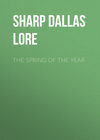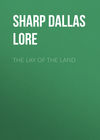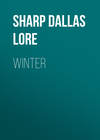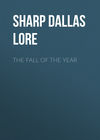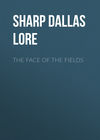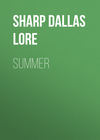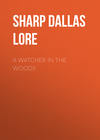Buch lesen: «The Spring of the Year»
INTRODUCTION
It has been my aim in the thirty-nine chapters of the three books in this series to carry my readers through the weeks of all the school year, not however as with a calendar, for that would be more or less wooden and artificial; but by readings, rather, that catch in a large way the spirit of the particular season, that give something definite and specific in the way of suggestions for tramps afield with things to look for and hear and do. Naturally many of the birds and animals and flowers mentioned, as well as woods and aspects of sky and field, are those of my own local environment – of my New England surrounding – and so must differ in some details from those surrounding you in your far Southern home or you on your distant Pacific coast, or you in your rich and varied valley of the Mississippi, or you on your wide and generous prairie. But the similarities and correspondences, the things and conditions we have in common, are more than our differences. Our sun, moon, sky, earth – our land – are the same, our love for this beautiful world is the same, as is that touch of nature which we all feel and which makes us all kin. Wherever, then, in these books of the seasons, the things treated differ from the things around you, read about those things for information, and in your journeys afield fill in the gaps with whatever it is that completes your landscape, or rounds out your cycle of the seasons, or links up your endless chain of life.
While I have tried to be accurate throughout these books, still it has not been my object chiefly to write a natural history – volumes of outdoor facts; but to quicken the imaginations behind the sharp eyes, behind the keen ears and the eager souls of the multitude of children who go to school, as I used to go to school, through an open, stirring, beckoning world of living things that I longed to range and understand.
The best thing that I can do as writer, that you can do as teacher, if I may quote from the last paragraph – the keynote of these volumes – is to “go into the fields and woods, go deep and far and frequently, with eyes and ears and all your souls alert.”
Mullein Hill, May, 1912
CHAPTER I
“SPRING! SPRING! SPRING!”
Who is your spring messenger? Is it bird or flower or beast that brings your spring? What sight or sound or smell spells S-P-R-I-N-G to you, in big, joyous letters?
Perhaps it is the frogs. Certainly I could not have a real spring without the frogs. They have peeped “Spring!” to me every time I have had a spring. Perhaps it is the arbutus, or the hepatica, or the pussy-willow, or the bluebird, or the yellow spice-bush, or, if you chance to live in New England, perhaps it is the wood pussy that brings your spring!
Beast, bird, or flower, whatever it is, there comes a day and a messenger and – spring! You know that spring is here. It may snow again before night: no matter; your messenger has brought you the news, brought you the very spring itself, and after all your waiting through the winter months are you going to be discouraged by a flurry of snow?
“All white and still lie stream and hill —
The winter dread and drear!
When from the skies a bluebird flies,
And – spring is here!”
To be sure, it is here, if the bluebird is your herald.
But how much faith in the weather you must have, and how you must long for the spring before the first bluebird brings it to you! Some sunny March day he drops down out of the blue sky, saying softly, sweetly, “Florida, florida!” as if calling the flowers; and then he is gone! – gone for days at a time, while it snows and blows and rains, freezes and thaws, thaws, thaws, until the March mud looks fitter for clams than for flowers.
So it is with the other first signs. If you want springtime ahead of time, then you must have it in your heart, out of reach of the weather, just as you must grow cucumbers in a hothouse if you want them ahead of time. But there comes a day when cucumbers will grow out of doors; and there comes a day when the bluebird and the song sparrow and all the other heralds stay, when spring has come whether you have a heart or not.
What day is that in your out-of-doors, and what sign have you to mark it? Mr. John Burroughs says his sign is the wake-robin, or trillium. When I was a school-boy it used to be for me the arbutus; but nowadays it is the shadbush: I have no sure settled spring until I see the shadbush beginning to open misty white in the edge of the woods. Then I can trust the weather; I can open my beehives; I can plough and plant my garden; I can start into the woods for a day with the birds and flowers; for when the shadbush opens, the great gate to the woods and fields swings open – wide open to let everybody in.
But perhaps you do not know what the shadbush is? That does not matter. You can easily enough find that out. Some call it June-berry; others call it service-berry; and the botany calls it A-me-lan’chi-er ca-na-den’sis! But that does not matter either. For this is not a botany lesson. It is an account of how springtime comes to me, and when and what are its signs. And I would have you read it to think how springtime comes to you, and when and what are its signs. So, if the dandelion, and not the shadbush, is your sign, then you must read “dandelion” here every time I write “shadbush.”
There is an old saying, “He that would bring home the wealth of the Indies must carry the wealth of the Indies out”; which is to say, those who bring home the wealth of the Indies, must carry out some kind of wealth in exchange. So you who would enjoy or understand what my shadbush means to me must have a shadbush of your own, or a dandelion, or something that is a sign to you that spring is here. Then, you see, my chapter in the book will become your own.
There are so many persons who do not know one bird from another, one tree from another, one flower from another; who would not know one season from another did they not see the spring hats in the milliner’s window or feel the need of a change of coat. I hope you are not one of them. I hope you are on the watch, instead, for the first phœbe or the earliest bloodroot, or are listening to catch the shrill, brave peeping of the little tree-frogs, the hylas.
As for me, I am on the watch for the shadbush. Oh, yes, spring comes before the shadbush opens, but it is likely not to stay. The wild geese trumpet spring in the gray March skies as they pass; a February rain, after a long cold season of snow, spatters your face with spring; the swelling buds on the maples, the fuzzy kittens on the pussy-willows, the opening marsh-marigolds in the meadows, the frogs, the bluebirds – all of these, while they stay, are the spring. But they are not sure to stay over night, here in New England. You may wake up and find it snowing – until the shadbush opens. After that, hang up your sled and skates, put away your overcoat and mittens; for spring is here, and the honey-bees will buzz every bright day until the October asters are in bloom.
I said if you want springtime ahead of time you must have it in your heart. Of course you must. If your heart is warm and your eye is keen, you can go forth in the dead of winter and gather buds, seeds, cocoons, and living things enough to make a little spring. For the fires of summer are never wholly out. They are only banked in the winter, smouldering always under the snow, and quick to brighten and burst into blaze. There comes a warm day in January, and across your thawing path crawls a woolly-bear caterpillar; a mourning-cloak butterfly flits through the woods, and the juncos sing. That night a howling snowstorm sweeps out of the north; the coals are covered again. So they kindle and darken, until they leap from the ashes of winter a pure, thin blaze in the shadbush, to burn higher and hotter across the summer, to flicker and die away – a line of yellow embers – in the weird witch-hazel of the autumn.
At the sign of the shadbush the doors of my springtime swing wide open. My birds are back, my turtles are out, my long sleeping woodchucks are wide awake. There is not a stretch of woodland or meadow now that shows a trace of winter. Over the pasture the bluets are beginning to drift, as if the haze on the distant hills, floating down in the night, had been caught in the dew-wet grass. They wash the field to its borders in their delicate azure hue. At the sign of the shadbush the doors of my memory, too, swing wide open, and I am a boy again in the meadows of my old home. The shadbush is in blossom, and the fish are running – the sturgeon up the Delaware; the shad up Cohansey Creek; and through the Lower Sluice, these soft, stirring nights, the catfish are slipping. Is there any real boy now in Lupton’s Meadows to watch them come? Oh yes, doubtless; and doubtless there ever shall be. But I would go down for this one night, down in the May moonlight, and listen, as I used to listen years ago, for the quiet splash splash splash, as the swarming catfish pass through the shallows of the main ditch, up toward the dam at the pond.
At the sign of the shadbush how swiftly the tides of life begin to rise! How mysteriously their currents run! – the fish swimming in from the sea, the birds flying up from the South, the flowers opening fresh from the soil, the insects coming out from their sleep: life moving everywhere – across the heavens, over the earth, along the deep, dim aisles of the sea!
CHAPTER II
THE SPRING RUNNING
This title is Kipling’s; the observations that follow are mine; but the real spring running is yours and mine and Kipling’s and Mowgli the wolf-child’s, whose running Kipling has told us about. Indeed, every child of the earth has felt it, has had the running – every living thing of the land and the sea.
Everything feels it; everything is restless, everything is moving. The renter changes houses; the city dweller goes “down to the shore” or up to the mountains to open his summer cottage; the farmer starts to break up the land for planting; the schoolchildren begin to squirm in their seats and long to fly out of the windows; and “Where are you going this summer?” is on every one’s lips.
They have all caught the spring running, the only infection I know that you can catch from April skies. The very sun has caught it, too, and is lengthening out his course, as if he hated to stop and go to bed at night. And the birds, that are supposed to go to bed most promptly, they sleep, says the good old poet Chaucer, with open eye, these April nights, so bad is their case of spring running, —
Their long journey northward over sea and land has not cured them yet of their unrest. Only one thing will do it (and I suppose we all should be glad), one sovereign remedy, and that is family cares. But they are yet a long way off.
Meantime watch your turkey-hen, how she saunters down the field alone, how pensive she looks, how lost for something to do and somewhere to go. She is sick with this disease of spring. Follow her, keeping out of sight yourself, and lo, a nest, hidden under a pile of brush in a corner of the pasture fence, half a mile from home!
The turkey-hen has wandered off half a mile to build her nest; but many wild birds have come on their small wings all the way from the forests of the Amazon and have gone on to Hudson Bay and the Fur Countries, just to build their nests and rear their young. A wonderful case of the spring running, you would say; and still more wonderful is the annual journey of the golden plover from Patagonia to Alaska and back, eight thousand miles each way. Yet there is another case that seems to me more mysterious, and quite as wonderful, as the sea seems more mysterious than the land.
It is the spring running of the fish. For when the great tidal waves of bird-life begin to roll northward with the sun, a corresponding movement begins among the denizens of the sea. The cold-blooded fish feel the stirring; the spring running seizes them, and in they come through the pathless wastes of the ocean, waves of them, shoals of them, – sturgeon, shad, herring, – like the waves and flocks of wild geese, warblers, and swallows overhead, – into the brackish water of the bays and rivers and on (the herring) into the fresh water of the ponds.
To watch the herring come up Weymouth Back River into Herring Run here near my home, as I do every April, is to watch one of the most interesting, most mysterious movements of all nature. It was about a century ago that men of Weymouth brought herring in barrels of water by ox-teams from Taunton River and liberated them in the pond at the head of Weymouth Back River. These fish laid their eggs in the grassy margins of the pond that spring and went out down the river to the sea. Later on, the young fry, when large enough to care for themselves, found their way down the river and out to sea.
And where did they go then? and what did they do? Who can tell? for who can read the dark book of the sea? Yet this one thing we know they did, for still they are doing it after all these hundred years, – they came back up the river, when they were full-grown, – up the river, up the run, up into the pond, to lay their eggs in the waters where they were hatched, in the waters that to them were home.
Something very much like this all the other fish are doing, as are the birds also. The spell of home is over land and sea, and has been laid upon them all. The bird companies of the fall went south at the inexorable command of Hunger; but a greater than Hunger is in command of the forces of spring. Now our vast bird army of North America, five billion strong, is moving northward at the call of Home. And the hosts of the sea, whose shining billions we cannot number, – they, too, are coming up, some of them far up through the shallow streams to the wood-walled ponds for a drink of the sweet waters of Home.
As a boy I used to go down to the meadows at night to hear the catfish coming, as now I go down to the village by day to see the herring coming. The catfish would swim in from the Cohansey, through the sluices in the bank, then up by way of the meadow ditches to the dam over which fall the waters of Lupton’s Pond.
It was a seven-or eight-foot dam, and of course the fish could not climb it. Down under the splashing water they would crowd by hundreds, their moving bodies close-packed, pushing forward, all trying to break through the wooden wall that blocked their way. Slow, stupid things they looked; but was not each big cat head pointed forward? each slow, cold brain trying to follow and keep up with each swift, warm heart? For the homeward-bound heart knows no barrier; it never stops for a dam.
The herring, too, on their way up the run are stopped by a dam; but the town, in granting to certain men the sole rights to catch the fish, stipulated that a number of the live herring, as many as several barrels full, should be helped over the dam each spring that they might go on up to the pond to deposit their eggs. If this were not done annually, the fish would soon cease to come, and the Weymouth herring would be no more.
There was no such lift for the catfish under Lupton’s dam. I often tossed them over into the pond, and so helped to continue the line; but perhaps there was no need, for spring after spring they returned. They were the young fish, I suppose, new each year, from parent fish that remain inside the pond the year round.
I cannot say now – I never asked myself before – whether it is Mother or Father Catfish who stays with the swarm (it is literally a swarm) of kitten catfish. It may be father, as in the case of Father Stickleback and Father Toadfish, who cares for the children. If it is – I take off my hat to him. I have four of my own; and I think if I had eighteen or twenty more I should have both hands full. But Father Catfish! Did you ever see his brood?
I should say that there might easily be five hundred young ones in the family, though I never have counted them. But you might. If you want to try it, take your small scoop-net of coarse cheesecloth, or mosquito-netting, and go down to the pond this spring. Close along the margin you will see holes in the shallow water running up under the overhanging grass and roots. The holes were made probably by the muskrats. It is in here that the old catfish is guarding the brood.
As soon as you learn to know the holes, you can cover the entrance with your net, and then by jumping or stamping hard on the ground above the hole, you will drive out the old fish with a flop, the family following in a fine, black cloud. The old fish will swim away, then come slowly back to the scattered swarm, to the little black things that look like small tadpoles, who soon cluster about the parent once more and wiggle away into the deep, dark water of the pond – the strangest family group that I know in all the spring world.
CHAPTER III
AN OLD APPLE TREE
Beyond the meadow, perhaps half a mile from my window, stands an old apple tree, the last of an ancient line that once marked the boundary between the “upper” and the “lower” pastures. It is a bent, broken, hoary old tree, grizzled with suckers from feet to crown. No one has pruned it for half a century; no one ever gathers its gnarly apples – no one but the cattle who love to lie in its shadow and munch its fruit.
The cows know the tree. One of their winding paths runs under its low-hung branches; and as I frequently travel the cow-paths, I also find my way thither. Yet I do not go for apples, nor just because the cow-path takes me. That old apple tree is hollow, hollow all over, trunk and branches, as hollow as a lodging-house; and I have never known it when it was not “putting up” some wayfaring visitor or some permanent lodger. So I go over, whenever I have a chance, to call upon my friends or pay my respects to the distinguished guests.
This old tree is on the neighboring farm. It does not belong to me, and I am glad; for if it did, then I should have to trim it, and scrape it, and plaster up its holes, and put a burlap petticoat on it, all because of the gruesome gypsy moths that infest my trees. Oh, yes, that would make it bear better apples, but what then would become of its birds and beasts? Everybody ought to have one apple tree that bears birds and beasts – and Baldwin apples, too, of course, if the three sorts of fruit can be made to grow on the same tree. But only the birds and beasts grow well on the untrimmed, unscraped, unplastered, unpetticoated old tree yonder between the pastures. His heart is wide open to every small traveler passing by.
Whenever I look over toward the old tree, I think of the old vine-covered, weather-beaten house in which my grandfather lived, where many a traveler put up over night – to get a plate of grandmother’s buckwheat cakes, I think, and a taste of her keen wit. The old house sat in under a grove of pin oak and pine, – “Underwood” we called it, – a sheltered, sheltering spot; with a peddler’s stall in the barn, a peddler’s place at the table, a peddler’s bed in the herby garret, a boundless, fathomless featherbed, of a piece with the house and the hospitality. There were larger houses and newer, in the neighborhood; but no other house in all the region, not even the tavern, two miles farther down the pike, was half so central, or so homelike, or so full of sweet and juicy gossip. The old apple tree yonder between the woods and the meadow is as central, as hospitable, and, if animals talk with one another, just as full of neighborhood news as was grandfather’s roof-tree.
Of course you would never suspect it, passing by. But then, no lover of wild things passes by – never without first stopping, and especially before an old tree all full of holes. Whenever you see a hole in a tree, in a sand-bank, in a hillside, under a rail-pile – anywhere out of doors, stop!
Stop here beside this decrepit apple tree. No, you will find no sign swinging from the front, no door-plate, no letter-box bearing the name of the family residing here. The birds and beasts do not advertise their houses so. They would hide their houses, they would have you pass by; for most persons are rude in the woods and fields, breaking into the homes of the wood-folk as they never would dream of doing in the case of their human neighbors.
There is no need of being rude anywhere, no need of being an unwelcome visitor even to the shyest and most timid of the little people of the fields. Come over with me – they know me in the old apple tree. It is nearly sundown. The evening is near, with night at its heels, for it is an early March day.
We shall not wait long. The doors will open that we may enter – enter into a home of the fields, and, a little way at least, into a life of the fields, for, as I have said, this old tree has a small dweller of some sort the year round.
On this March day we shall be admitted by my owls. They take possession late in winter and occupy the tree, with some curious fellow tenants, until early summer. I can count upon these small screech owls by February, – the forlorn month, the seasonless, hopeless, lifeless month of the year, but for its owls, its thaws, its lengthening days, its cackling pullets, its possible bluebirds, and its being the year’s end! At least the ancients called February, not December, the year’s end, maintaining, with some sense, that the making of the world was begun in March, that is, with the spring. The owls do not, like the swallows, bring the spring, but they nevertheless help winter with most seemly haste into an early grave.
If, as the dusk comes down, I cannot go over to the tree, I will go to my window and watch. I cannot see him, the grim-beaked baron with his hooked talons, his ghostly wings, his night-seeing eyes, but I know that he has come to his window in the apple-tree turret yonder against the darkening sky, and that he watches with me. I cannot see him swoop downward over the ditches, nor see him quarter the meadow, beating, dangling, dropping between the flattened tussocks; nor can I hear him, as, back on the silent shadows, he slants upward again to his tower. Mine are human eyes, human ears. Even the quick-eared meadow mouse did not hear until the long talons closed and it was too late.
But there have been times when, like some belated traveler, I have been forced to cross this wild night-land of his; and I have felt him pass – so near at times that he has stirred my hair, by the wind – dare I say? – of his mysterious wings. At other times I have heard him. Often on the edge of night I have listened to his quavering, querulous cry from the elm-tops below me by the meadow. But oftener I have watched at the casement here in my castle wall.
Away yonder on the borders of night, dim and gloomy, looms his ancient keep. I wait. Soon on the deepened dusk spread his soft wings, out over the meadow he sails, up over my wooded height, over my moat, to my turret tall, as silent and unseen as the soul of a shadow, except he drift across the face of the full round moon, or with his weird cry cause the dreaming quiet to stir in its sleep and moan.
Now let us go over again to the old tree, this time in May. It will be curious enough, as the soft dusk comes on, to see the round face of the owl in one hole and, out of another hole in the broken limb above, the flat, weazened face of a little tree-toad.
Both creatures love the dusk; both have come forth to their open doors to watch the darkening; both will make off under the cover of the night – one for mice and frogs over the meadow, the other for slugs and insects over the crooked, tangled limbs of the apple tree.
It is strange enough to see them together, but it is stranger still to think of them together; for it is just such prey as this little toad that the owl has gone over the meadow to catch.
Why does he not take the supper ready here on the shelf? There may be reasons that we, who do not eat tree-toad, know nothing of; but I am inclined to believe that the owl has never seen his fellow lodger in the doorway above, though he must often have heard him trilling gently and lonesomely in the gloaming, when his skin cries for rain!
Small wonder if they have never met! for this gray, squat, disk-toed little monster in the hole, or flattened on the bark of the tree like a patch of lichen, may well be one of the things that are hidden from even the sharp-eyed owl. It is always a source of fresh amazement, the way that this largest of the hylas, on the moss-marked rind of an old tree, can utterly blot himself out before your staring eyes.
The common toads and all the frogs have enemies enough, and it would seem from the comparative scarcity of the tree-toads that they must have enemies, too; but I do not know who they are. This scarcity of the tree-toads is something of a puzzle, and all the more to me, that, to my certain knowledge, this toad has lived in the old Baldwin tree, now, for five years. Perhaps he has been several toads, you say, not one; for who can tell one tree-toad from another? Nobody; and for that reason I made, some time ago, a simple experiment, in order to see how long a tree-toad might live, unprotected, in his own natural environment.
Upon moving into this house, about nine years ago, we found a tree-toad living in the big hickory by the porch. For the next three springs he reappeared, and all summer long we would find him, now on the tree, now on the porch, often on the railing and backed tight up against a post. Was he one or many? we asked. Then we marked him; and for the next four years we knew that he was himself alone. How many more years he might have lived in the hickory for us all to pet, I should like to know; but last summer, to our great sorrow, the gypsy moth killers, poking in the hole, hit our little friend and left him dead.
It was very wonderful to me, the instinct for home – the love for home, I should like to call it – that this humble little creature showed. Now, a toad is an amphibian to the zoölogist; an ugly gnome with a jeweled eye, to the poet; but to the naturalist, the lover of life for its own sake, who lives next door to his toad, who feeds him a fly or a fat grub now and then, who tickles him to sleep with a rose leaf, who waits as thirstily as the hilltop for him to call the summer rain, who knows his going to sleep for the winter, his waking up for the spring – to such a one, I say, a tree-toad means more than the jeweled eye and the strange amphibious habits.
This small tree-toad had a home, had it in a tree, too, – in a hickory tree, – this toad that dwelt by my house.
“East, west,
Hame’s best,”
croaked our tree-toad in a tremulous, plaintive song that wakened memories in the vague twilight of more old, unhappy, far-off things than any other voice I ever knew.
These two tree-toads could not have been induced to trade houses, the hickory for the apple, because a house to a toad means home, and a home is never in the market. There are many more houses in the land than homes. Most of us are only real-estate dealers. Many of us have never had a home; and none of us has ever had, perhaps, more than one, or could have – that home of our childhood.
This toad seemed to feel it all. Here in the hickory for four years (more nearly seven, I am sure) he lived, single and alone. He would go down to the meadow when the toads gathered there to lay their eggs; but back he would come, without mate or companion, to his tree. Stronger than love of kind, than love of mate, constant and dominant in his slow cold heart was his instinct for home.
If I go down to the orchard and bring up from an apple tree some other toad to dwell in the hole of the hickory, I shall fail. He might remain for the day, but not throughout the night, for with the gathering twilight there steals upon him an irresistible longing; and guided by it, as bee and pigeon and dog and man are guided, he makes his sure way back to his orchard home.
Would my toad of the Baldwin tree go back beyond the orchard, over the road, over the wide meadow, over to the old tree, half a mile away, if I brought him from there? We shall see. During the coming summer I shall mark him in some manner, and bringing him here to the hickory, I shall then watch the old apple tree yonder to see if he returns. It will be a hard, perilous journey. But his longing will not let him rest; and, guided by his mysterious sense of direction, – for that one place, – he will arrive, I am sure, or he will die on the way.
Suppose he never gets back? Only one toad less? A great deal more than that. There in the old Baldwin he has made his home for I don’t know how long, hunting over its world of branches in the summer, sleeping down in its deep holes during the winter – down under the chips and punk and castings, beneath the nest of the owls, it may be; for my toad in the hickory always buried himself so, down in the débris at the bottom of the hole, where, in a kind of cold storage, he preserved himself until thawed out by the spring.
I never pass the old apple in the summer but that I stop to pay my respects to the toad; nor in the winter that I do not pause and think of him asleep in there. He is no longer mere toad. He has passed into the Guardian Spirit of the tree, warring in the green leaf against worm and grub and slug, and in the dry leaf hiding himself, a heart of life, within the thin ribs, as if to save the old shell of a tree to another summer.
Often in the dusk, especially the summer dusk, I have gone over to sit at his feet and learn some of the things that my school-teachers and college professors did not teach me.
Seating myself comfortably at the foot of the tree, I wait. The toad comes forth to the edge of his hole above me, settles himself comfortably, and waits. And the lesson begins. The quiet of the summer evening steals out with the wood-shadows and softly covers the fields. We do not stir. An hour passes. We do not stir. Not to stir is the lesson – one of the primary lessons in this course with the toad.
